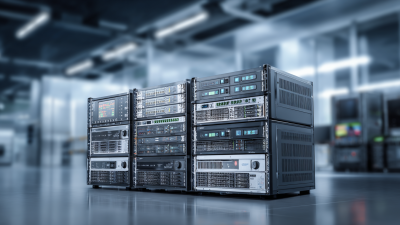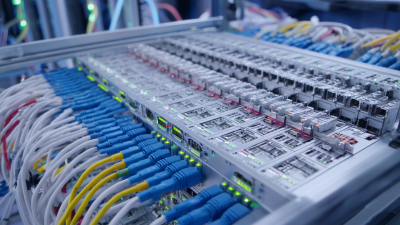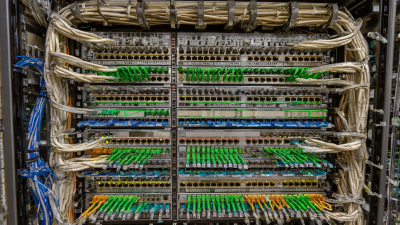In today’s fast-paced business environment, having the right network infrastructure is crucial for maintaining seamless operations and ensuring reliable connectivity. One of the key components of this infrastructure is the Juniper Network Switch, which plays a vital role in managing data flow and enhancing network performance. However, with the plethora of options available, selecting the ideal Juniper Network Switch tailored to your specific business needs can be a daunting task. This essential checklist aims to provide you with top strategies and considerations to streamline your decision-making process. By understanding your organization's requirements and evaluating the different features and capabilities of Juniper switches, you can make an informed choice that not only supports your current operations but also positions your company for future growth and technological advancements.

When selecting a Juniper network switch for your business needs, it is crucial to consider several key features that align with the latest industry advancements. As the demand for efficient data handling continues to rise, especially with the emergence of AI workloads, organizations are turning to switches that can provide high throughput and reliability. For instance, the recent launch of a switch series achieving an unprecedented 102.4 Terabits per second highlights the capacity required to support complex networks, especially those involving a multitude of GPUs.
Additionally, Juniper's commitment to AI-driven innovations further underscores the importance of smart networking solutions. Their recent upgrades to AI-native networking platforms enhance the wired and wireless experience, emphasizing the demand for automation and proactive insights in managing network infrastructure.
According to industry reports, embracing AI capabilities in network switches not only improves performance but also facilitates greater security through frameworks such as Zero Trust. As enterprises evaluate their networking needs, prioritizing AI compatibility and high-performance metrics will be essential for future-proofing their operations.
When selecting a Juniper network switch for your business, it's essential to understand the different types available and how they align with your operational needs. Juniper offers a range of switches, including fixed-configuration, modular, and virtual switches, each designed to support varying levels of performance and scalability.
 Fixed-configuration switches are ideal for smaller businesses looking for straightforward deployment and management. In contrast, modular switches cater to larger enterprises with extensive networking requirements and allow for more flexible configurations as needs evolve.
Fixed-configuration switches are ideal for smaller businesses looking for straightforward deployment and management. In contrast, modular switches cater to larger enterprises with extensive networking requirements and allow for more flexible configurations as needs evolve.
Tips: Consider your current and projected network demands when choosing a switch type. A fixed-configuration switch might suffice for a startup, but if you anticipate rapid growth, a modular switch could provide the scalability you need without requiring a complete overhaul in the near future. Additionally, assess your budget; while modular switches offer flexibility, they often come at a higher initial cost.
Another critical consideration is the switch’s features, such as Power over Ethernet (PoE), Layer 3 capabilities, or support for software-defined networking. These functionalities can significantly impact your network’s efficiency and adaptability.
Tips: Prioritize essential features that support your applications and future-proof your investment, ensuring the switch you choose complements your overall IT strategy.
When selecting the right Juniper network switch for your business, it’s crucial to evaluate your network performance requirements meticulously. Understanding the specific needs of your organization, including bandwidth, speed, and reliability, sets the foundation for an effective networking solution. Mobile connectivity has become integral to driving innovation and digital transformation, and a well-optimized network switch can significantly enhance communication efficiency and productivity across your company.
A critical aspect of this evaluation process is to assess the scalability of the network switch. As your business grows, so will your demand for networking capabilities. Key performance metrics, such as latency and throughput, need careful consideration. Additionally, leveraging network performance monitoring tools can provide insights into current usage patterns and potential bottlenecks, ensuring that the chosen switch can adapt to changing network demands. In an era where efficient energy use and optimized performance are paramount, selecting a switch that aligns with your strategic objectives will empower your business to thrive in an increasingly digital landscape.
When selecting a Juniper network switch for your business, budget considerations are crucial. It's essential to balance cost and value, ensuring that you invest wisely in technology that meets your needs without straining your finances. Understanding your current expenditures and forecasting future needs can help create a solid foundation for your budget. Utilizing recent insights on budgeting, you can analyze the features that provide the most value relative to their cost.
Tips for staying within budget while ensuring you select the right switch include examining total cost of ownership (TCO) rather than just the initial purchase price. Consider elements like maintenance, support, and potential scalability. Another key tip is to seek out promotional offers or bundles that may provide additional value. This can significantly impact your overall expenditure while still allowing you to acquire high-quality networking technology that easily adapts as your business grows.
Finally, don’t forget to involve your IT team in the decision-making process. Their technical expertise can help you identify the right switches that align with both your budget and operational goals, ensuring you make a sound investment that pays dividends in the long run.
This chart illustrates the cost of various networking switches alongside their corresponding value ratings. It helps to visualize the trade-off between cost and perceived value, assisting in making informed decisions for your business needs.
When selecting a Juniper network switch, one of the most critical factors to consider is scalability and upgrade options. According to a report by IDC, 90% of organizations are planning to invest in scalable network infrastructures as they adapt to evolving business demands. This trend underscores the necessity for businesses to choose switches that not only meet their current needs but are also capable of accommodating future growth. Juniper's modular architectures provide flexibility, allowing businesses to add additional ports or upgrade to higher-capacity modules without needing a complete overhaul of their existing systems.
Moreover, as digital transformation accelerates, having a future-proof network infrastructure becomes paramount. Gartner predicts that by 2025, over 70% of enterprises will rely on cloud services and hybrid infrastructures. This shift requires network switches that support advanced features like virtualization, automation, and enhanced security protocols. By investing in Juniper network switches that offer these upgrade options, businesses can ensure that they are not only protected against technology obsolescence but are also equipped to leverage emerging technologies effectively, maintaining a competitive edge in the marketplace.









